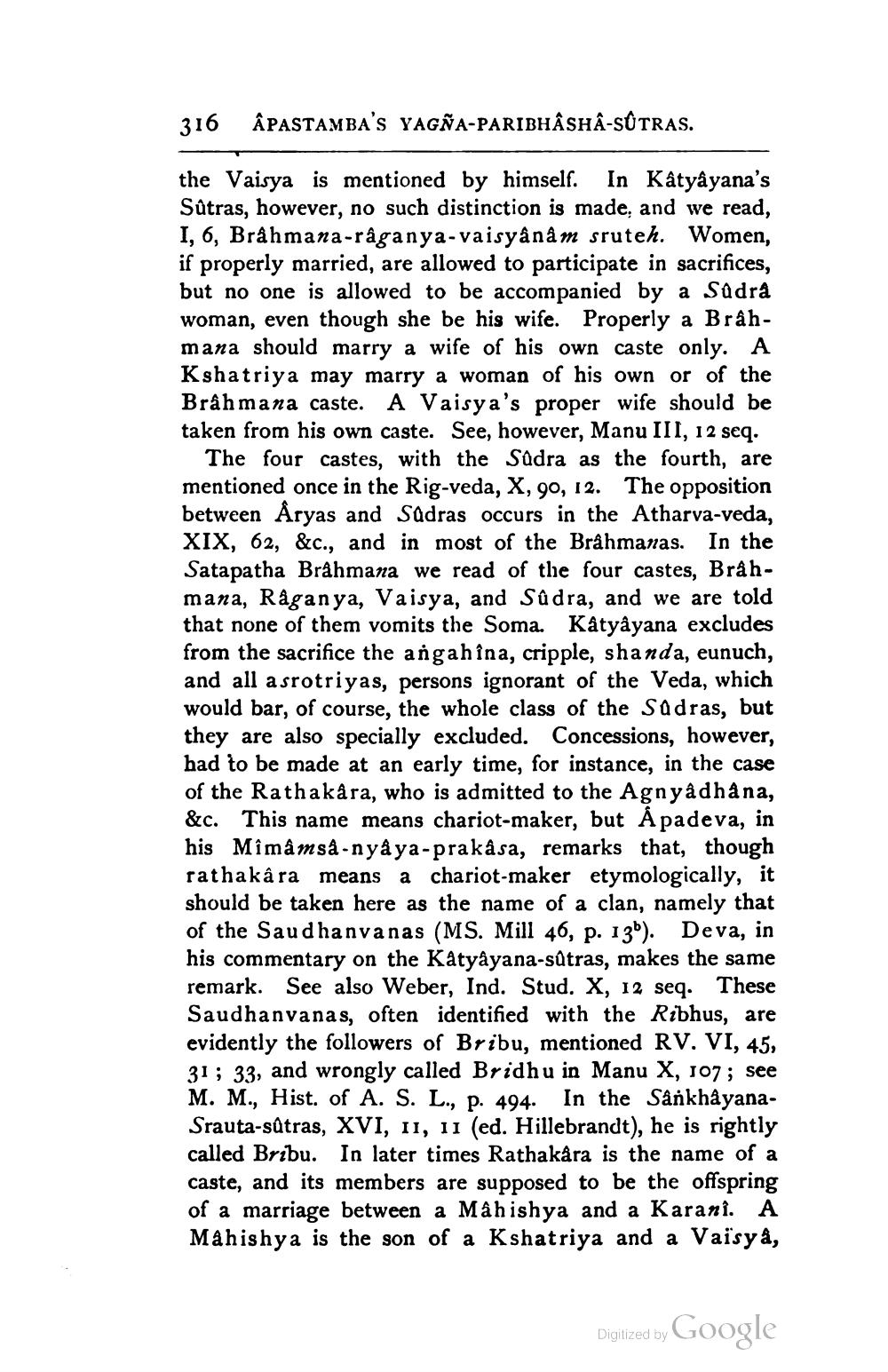________________
316
ÂPASTAMBA'S YAGÑA-PARIBHÂSHA-SOTRAS.
the Vaisya is mentioned by himself. In Kâtyâyana's Sûtras, however, no such distinction is made, and we read, I, 6, Brahmana-râganya-vaisyânâ m sruteh. Women, if properly married, are allowed to participate in sacrifices, but no one is allowed to be accompanied by a Sudra woman, even though she be his wife. Properly a Brâhmana should marry a wife of his own caste only. A Kshatriya may marry a woman of his own or of the Brâh mana caste. A Vaisya's proper wife should be taken from his own caste. See, however, Manu III, 12 seq.
The four castes, with the Sadra as the fourth, are mentioned once in the Rig-veda, X, 90, 12. The opposition between Aryas and Sadras occurs in the Atharva-veda, XIX, 62, &c., and in most of the Bråhmanas. In the Satapatha Brahmana we read of the four castes, Brahmana, Råganya, Vaisya, and Sûdra, and we are told that none of them vomits the Soma. Katyayana excludes from the sacrifice the angahîna, cripple, shanda, eunuch, and all a srotriyas, persons ignorant of the Veda, which would bar, of course, the whole class of the Sadras, but they are also specially excluded. Concessions, however, had to be made at an early time, for instance, in the case of the Rathakara, who is admitted to the Agnyâdhana, &c. This name means chariot-maker, but Åpadeva, in his Mîmâmsa-nyâya-prakåsa, remarks that, though rathakâra means a chariot-maker etymologically, it should be taken here as the name of a clan, namely that of the Saudhanvanas (MS. Mill 46, p. 136). Deva, in his commentary on the Katyayana-sútras, makes the same remark. See also Weber, Ind. Stud. X, 12 seq. These Saudhanvanas, often identified with the Ribhus, are evidently the followers of Bribu, mentioned RV. VI, 45, 31; 33, and wrongly called Bridhu in Manu X, 107; see M. M., Hist. of A. S. L., p. 494. In the SankhåyanaSrauta-sůtras, XVI, 11, 11 (ed. Hillebrandt), he is rightly called Bribu. In later times Rathakåra is the name of a caste, and its members are supposed to be the offspring of a marriage between a Mâhishya and a Karani. A Mahishya is the son of a Kshatriya and a Vaisyå,
Digitized by Google




